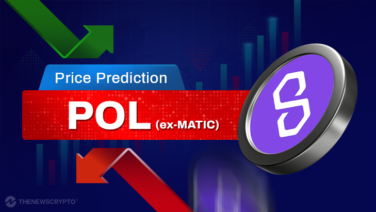- Polygon Labs advocates for collaborative regulation in the DeFi ecosystem.
- Flexibility in defining decentralization crucial for effective DeFi regulation.
- Cooperation among regulators and industry is key to balancing oversight and innovation in DeFi.
Polygon Labs, a prominent player in the decentralized finance (DeFi) ecosystem, has submitted its response to the recent “Decentralized” or ‘disintermediated’ finance: what regulatory response?” discussion paper by the Fintech-Innovation Hub of the ‘Authorite de controle prudentiel et de resolution’ (ACPR), a division of Banque de France. The response reflects Polygon Labs’ commitment to collaborative policymaking and regulation in the rapidly evolving world of DeFi.
To: France
— Polygon (Labs) (@0xPolygonLabs) May 23, 2023
Re: Regulatory Responsehttps://t.co/xlRAgqke1B https://t.co/p5IrQ1DHoI
The ACPR’s discussion paper delves into various aspects of the DeFi ecosystem, including the three primary layers identified by the ACPR: L1s/L2s, the smart contract app layer, and the systems enabling user access to DeFi. It also explores oracles, decentralized governance, and stablecoins and proposes different approaches to ensure the safety, stability, and informed decision-making for users of DeFi protocols.
Polygon Labs appreciates the ACPR’s comprehensive examination of the DeFi landscape and embraces the collaborative approach adopted in shaping policy and regulation for this emerging technology. While generally supportive of ACPR’s definition of DeFi and its core attributes, Polygon Labs emphasizes the importance of flexibility in defining decentralization to align with desired regulatory outcomes rather than rigid criteria.
Polygon Labs’ Solutions for a Safer DeFi Ecosystem
In its response, Polygon Labs advocates for a regulatory framework that focuses on regulating activities rather than targeting technology or software developers, aligning with its policy principles.
The response cautions against direct regulation of permissionless blockchains and opposes the proposal to transfer all “financial functions” in DeFi to private blockchains. Polygon Labs argues that such measures would erode the inherent benefits of public blockchains, including the efficiency and transparency offered by smart contracts.
Furthermore, Polygon Labs offers additional proposals and solutions to mitigate risks and enhance user protection within the DeFi ecosystem. The response underscores the significance of cooperation among regulators, policymakers, and industry stakeholders to foster an environment that ensures the integrity of the novel DeFi system while nurturing innovation.
The engagement between Polygon Labs and the ACPR exemplifies a joint effort to establish effective regulation while allowing the DeFi space to flourish. By fostering collaboration and embracing the opportunities for constructive dialogue, the industry can strike a balance between regulatory oversight and innovation, safeguarding the interests of all stakeholders involved.
Overall, Polygon Labs’ response contributes to the ongoing conversation surrounding DeFi regulation, emphasizing the need for a nuanced approach that embraces collaboration, protects users, and capitalizes on the transformative potential of decentralized finance.








